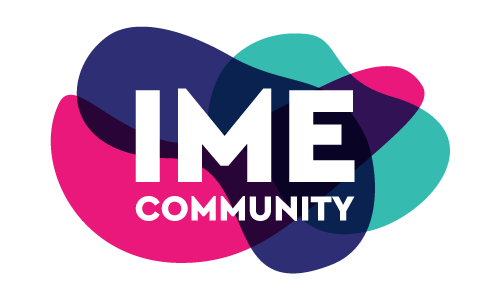
by Dr.Karla, ActivistMD | Jul 7, 2021 | General
I have this edge to me. You do too. No doubt. It’s what it takes to achieve goals.
“Don’t say good job, say bad job.” My daughter, Katherine, used to say that to us when she was a toddler whenever we would praise her. She didn’t like syrupy praise. She’s 20 and a junior in college and she still can’t stand syrupy praise. She finds it patronizing and condescending. She also doesn’t like to be told what to do. Who does?
Who’s telling you what to eat?
Food companies, soda companies, society, culture, medical establishment, the government, some doctors who refuse to challenge what isn’t working, some dietitians, have all been telling you what to eat. I’m not saying there isn’t some helpful advice or education out there, but there’s a difference between education and telling someone what to do.
Telling someone what to do in any area of their life brings up NEA (Negative Emotion Attraction) and will not move anyone toward their desired outcome or sustainable change transformation.
I’m reading or listening on Audible (it’s never a shameless plug to promote audio books) a book called, “Helping People Change” by expert coaches and professors at Case Western Reserve.
I heard one of the authors speak on the Institute of Coaching Webinar which is a group I am a member of that takes a scientific approach to coaching. There are many research articles that show the positive benefits of coaching. I love the positive psychology movement and taking a strengths-based approach to behavior change.
So, one of the key teachings in the book I was listening to, and if you’ve ever listened to a book on Audible, it is really dependent on the narrator’s voice whether you stay awake or not. And, if you’re like me and you space off after a while, like I have always done in church around minute 8 or so, no offense to all the ministers out there, you miss out on whole chunks of the audio book and have to rewind. Or not.
Anyway, I’m really interested in the response to different kinds of coaching. If a coach coaches with compliance, meaning giving a directive or basically telling someone what to do, it is much less likely to be effective, meaning it is less likely to help you reach your desired outcome and you will struggle with sustaining that outcome.
It’s kind of dumb luck for those of us coaches who are just decently nice people and care about other human beings. That’s just kind of a nice thing in life. We can always be more intentional and on purpose compassionate with our coaching. Which is not babying you. It’s believing in your unlimited potential and loving you no matter what. It’s not trying to fix you. It’s knowing in our hearts that there could never be anything to fix because you are never broken. It’s not coaching you and pushing what I think is best. It’s helping you discover what you believe is best and works for you. So, that’s coaching with compassion.
Coaching with compassion taps into your ideal self, is self-directed, and visionary. You make decisions based on your higher brain. It’s like my vision to create community through compassionate connection. I see it and I own that vision. Remember, IME Community, it’s like building a city and the essential functions are laid out and we are just populating it.
It’s creating your own beautiful personal vision word-cloud. It’s your dream-speak. No one takes it away. You get to take your vision alongside of you. You and your vision get to choose your own adventure! I want your personal health to be a part of your vision because you are worthy and deserve your healthy life and I believe in your unlimited potential to create any result you want. Instead of NEA, restrict and indulgence mindset, coaching with compassion brings up PEA (Positive Emotion Activation) and gets you where you want to go.
There’s a reason why I’m teaching you all about self-love superpower in the beginning because you will learn to self-coach. In fact, I can coach you with compassion until the end of time, but if you are in your head giving power away to the negative self-talk, coaching yourself with compliance, telling yourself what you should be doing, buying into society’s and our culture’s beliefs about what to eat, singular solutions, fixated on the how and the what and not your why, you will be self-sabotaging.
So, what do you have to lose by trying a new more compassionate and positive approach? You will lose a lot of negative emotions and pain and probably some weight and will gain positive emotions, your desired outcomes, and your vision for yourself and your health. Sounds pretty good to me!
Do not tell me what to eat!
You’ve got this!
Self-love Superpower,
Dr. Karla, ActivistMD

by Dr.Karla, ActivistMD | Jun 4, 2021 | General
(Playlist- “Walking on Sunshine” by Katrina and the Waves)
Do you want to feel more positive? I’m not talking about the toxic positivity sugary layer of fakeness slapped on tough situations. Don’t you just feel like telling toxic positive people to shut their mouths?
Positivity has to be believable.
You create positivity with your thoughts and with intention.
You can’t always change up the circumstances or people or situations in our lives, but you can change your thoughts to create more positivity in your life.
First, if you feel stuck in a funk, start taking some action that will support creating positivity in your life. I challenge you to go outside for at least a few minutes every day.
You will connect to the world outside of yourself. Make an observation. Positivity is all about connection.
Every day, start creating positivity by writing down three things you are grateful for and before you go to bed, write down three amazing things that happened today. Literally, can be the smallest things ever.
Start connecting on purpose and with daily intention and over time, you will create more positive thoughts, which generate more positive feelings, which create more positive actions and results in your life!
Check out my daily mini podcast episodes IME Community Radio Blasts to get your day started with self-love! Let’s connect and co-create IME Community!
self-love superpower,
Dr. Karla

by Dr.Karla, ActivistMD | Jun 4, 2021 | General
Are you worried about COVID weight gain?
Are you being hard on yourself or mobilizing that negative self-talk inner critic?
I could say, just stop it, but we all know it’s not that easy.
We’ve all been through a lot with COVID and are learning how to merge into life again.
Have grace and compassion for yourself.
First, recognize when you are triggered and being hard on yourself and how it comes up in your body. It’s okay.
Breathe in and out through your nose to calm. Put your hand over your heart or give yourself a little nurturing hug. Disrupt the negative self-talk by standing up, going outside for a few minutes, or try talking with self-compassion to yourself like you would a friend who is being hard on themselves.
All change starts with loving ourselves, but first you have to recognize when you are giving that inner critic all your power. You’ve got this! Check out my daily mini podcast episodes IME Community Radio Blasts to get your day started with self-love! On my playlist for the day is a song from my favorite band, U2, “Sometimes You Can’t Make It on Your Own”, which means we’re all in this together. Let’s co-create IME Community!
self-love superpower,
Dr. Karla

by Dr.Karla, ActivistMD | Apr 20, 2021 | General
Here’s a great quote:
“If you’re searching for that one person that will change your life, take a look in the mirror.”
I recently did a coaching call focusing on self-worth and self-esteem after watching a TikTok body positive influencer talk about her “big girl embarrassing moments” going out with her friends. Give it a listen and watch the YouTube video. I started the coaching call with MJB’s “Just Fine”, one of my all-time favorite songs. I jam out on these coaching calls. I’m just getting IME Community going and so decided to take the opportunity to record the call and put it in the member community as teens sign up and we co-create IME Community together.
I was wondering what said TikToker was making it mean when she goes out with her friends and has all of these experiences. Seems like she is making it mean she doesn’t fit in and she is constantly creating evidence for herself for that. Now, her message resonates and she is totally slaying it on TikTok (unlike me) but how does it serve her and at what cost to her and her self-esteem when she gives power away to the external?
Also, are we creating more peripheralization for ourselves when we continue to look for evidence and believe thoughts that don’t serve us?
Parents are the worst! Parents are obsessed with self-esteem. We want our teens, our kids to have high self-esteem because that’s the ticket to success in all areas of life. Am I right? At least, that’s what we believe. We rarely challenge beliefs and ask if they are really true. COVID has punctured a huge hole in so many bubbles. What was important doesn’t even matter any more in many cases. One glaring example, is how on TikTok, 18 year-old students in high school are posting their college acceptance results. Us parents and schools and society and social media have created this pressure and high stakes over a random and rigged (celebrity parents buying their kids’ acceptance) process. It’s silly, but I fell for it. I went through this with my oldest daughter, who’s now 20, and I really feel so embarrassed about it. She’s cool and it was a hard process for her, but she made her own decisions and I couldn’t be prouder of her. Don’t have scarcity for self-esteem. Self-esteem doesn’t come from whether you get into your dream school or not. That being said, if you got into your dream school, celebrate your amazing success!
Having high self-esteem is great. It’s just that, in our culture, how we believe one gets self-esteem is kind of messed up. Just like almost all things, we put all the pressure on the external and focus on achievements and success and how we rank and how we are perceived in the world. It’s like, if we get to accomplish these achievements, or our teen does, because we are talking about teens, correct, we will then have high self esteem? Sorry, I sometimes default to myself, especially when talking about self-esteem. So, we chase the achievement, thinking and believing the accomplishment will make us have more self-esteem, and we (yes, I’m saying we, but I could say I with this when I look at how I have parented my teens) push and push our kids to achieve, and then we compare our teens to others, even our little kids on the soccer field, basketball court, in the musical, on the honor roll (remember the annoying bumper stickers that said, “Parent of an honor roll student”). How did we go from “Baby on Board” to “Parent of an honor roll student”? It’s just an endless cycle we are white knuckling through. How do we let it go and how do we know if we have high self-esteem and what builds self-esteem?
I recommend starting by taking the Rosenberg self-esteem scale (RSES). It’s only 10 easy questions and is online. It’s all self-discovery and learning. Don’t be afraid to take the survey and don’t make the results mean anything about you. Self-esteem is not fixed, so don’t have a scarcity mindset. Self-esteem is fluid and dynamic and abundant beyond the measures of an online scale. So, start there with the RSES.
I’m an intense researcher. JK. This is straight out of Wikipedia for you:
The Rosenberg self-esteem scale (RSES), developed by the sociologist Morris Rosenberg,[1] is a self-esteem measure widely used in social-science research. It uses a scale of 0–30 where a score less than 15 may indicate a problematic low self esteem.[2]
Self-esteem is an individual’s subjective evaluation of their own worth. Self-esteem encompasses beliefs about oneself (for example, “I am unloved”, “I am worthy”) as well as emotional states, such as triumph, despair, pride, and shame.[1] Smith and Mackie (2007) defined it by saying “The self-concept is what we think about the self; self-esteem, is the positive or negative evaluations of the self, as in how we feel about it.”[2]
Self-esteem is an attractive psychological construct because it predicts certain outcomes, such as academic achievement,[3][4] happiness,[5] satisfaction in marriage and relationships,[6] and criminal behavior.[6] Self-esteem can apply to a specific attribute (for example, “I believe I am a good writer and I feel happy about that”) or globally (for example, “I believe I am a bad person, and I feel bad about myself in general”). Psychologists usually regard self-esteem as an enduring personality characteristic (trait self-esteem), though normal, short-term variations (state self-esteem) also exist. Synonyms or near-synonyms of self-esteem include many things: self-worth,[7] self-regard,[8] self-respect,[9][10] and self-integrity.
Experiences in a person’s life are a major source of how self-esteem develops.[5] In the early years of a child’s life, parents have a significant influence on self-esteem and can be considered the main source of positive and negative experiences a child will have.[32] Unconditional love from parents helps a child develop a stable sense of being cared for and respected. These feelings translate into later effects on self-esteem as the child grows older.[33] Students in elementary school who have high self-esteem tend to have authoritative parents who are caring, supportive adults who set clear standards for their child and allow them to voice their opinion in decision making.
Childhood experiences that contribute to healthy self-esteem include being listened to, being spoken to respectfully, receiving appropriate attention and affection and having accomplishments recognized and mistakes or failures acknowledged and accepted. Experiences that contribute to low self-esteem include being harshly criticized, being physically, sexually or emotionally abused, being ignored, ridiculed or teased or being expected to be “perfect” all the time.[37]
During school-aged years, academic achievement is a significant contributor to self-esteem development.[5] Consistently achieving success or consistently failing will have a strong effect on students’ individual self-esteem.[38] However, students can also experience low self- esteem while in school. For example, they may not have academic achievements, or they live in a troubled environment outside of school. Issues like the ones previously stated, can cause adolescents to doubt themselves. Social experiences are another important contributor to self-esteem. As children go through school, they begin to understand and recognize differences between themselves and their classmates. Using social comparisons, children assess whether they did better or worse than classmates in different activities. These comparisons play an important role in shaping the child’s self-esteem and influence the positive or negative feelings they have about themselves.[39][40] As children go through adolescence, peer influence becomes much more important. Adolescents make appraisals of themselves based on their relationships with close friends.[41] Successful relationships among friends are very important to the development of high self-esteem for children. Social acceptance brings about confidence and produces high self-esteem, whereas rejection from peers and loneliness brings about self-doubts and produces low self-esteem.[42] “
Enough nerding out! Back to the blog!
One of my important messages is that self-esteem is both internal and external. I coach and have done a lot of my podcasts and YouTube videos on self-love, self-compassion, self-judging, self-trust, self-kindness, most of which are internally focused. But, self-esteem is both and it is up to us as individuals to create a balance for ourselves. Relying on the external and others’ opinions of us, or what we believe is others’ opinion of us, which we don’t control, doesn’t help us with our self-esteem. When we believe that someone else shouldn’t be doing something or saying something, we are arguing with reality. You can argue with me until the end of time on this and I know how hard this is to get, but, whatever anyone says or does is what they should be saying or doing because they are saying and doing it. It’s just reality. When we think that they shouldn’t be saying or doing something, then we are “shoulding” what we don’t have power over and then inevitably will “should” ourselves into getting in their business to convince them they are wrong. We are wasting our time.
I’ve said this many times, but you are not put here to fix and solve problems in the world. You can definitely show up and tend to your causes and have major impact and change the world over time.
You are here to live your amazing beautiful big magical life! By the way, check out my beautiful book, “the magical everywhere”, especially if you have a younger or school-aged child in your life. You will learn about Magical Gigi, one of my patients who died when she was eight years old from brain cancer. Magical Gigi lived her big magic life. She had a beautiful balance of internal and external self-esteem, just naturally. We can all learn from her positive message to look for “the magical everywhere”. Plus, a portion of all proceeds are contributed to child health non-profits. Go to IME Books on the website to order yours!
What gets in the way of self-esteem? Shame is an obstacle to self-esteem. Shame lives in the dark and is a feeling that comes up when we have a thought that we don’t fit in or we don’t belong. We continue to believe thoughts are true that we are broken and need fixing. Thoughts are just clouds going by, rainbows that come and go, a sentence in your mind. We don’t have to believe them to be true.
Dr. Brene’ Brown is the top researcher in shame. I hope you will read her books and listen to her podcast, “Unlocking Us” and “Daring Greatly”. They are on Spotify. So is the IME Community podcast. Hint. Hint. Please like and subscribe.
Shame is a feeling or emotion. A feeling or emotion is just a vibration in our body. As humans on a human journey, we will experience all of the feelings and emotions. Everyone experiences shame. It feels like a nauseating twinge for me in my stomach. It’s a really uncomfortable feeling for me, but I now know how to recognize it and allow it and process shame instead of reacting, avoiding, or resisting. I respond to shame when it comes up and I don’t make it mean that, just because I experience and am feeling shame, that I’m shameful. I don’t make it mean anything about me. Then it just comes and goes and there’s nothing going wrong. If that’s the worst that can happen is a vibration in the body and some discomfort, but I know I always have my own back, and I fully trust myself not to make it mean anything about me, then it’s okay. I feel shame, but I am not shameful.
One of the most important skills I life coach teens on is to feel their emotions instead of reacting, avoiding and resisting. What does shame feel like for you? Can you describe it?
Get started on your building self-esteem journey by taking the online survey and see where you are, then look more closely at the 10 questions on the RSES and do a little inquiry. Ask yourself, do I have self-esteem balance? How can I create internal and external balance when it comes to self-esteem? What are some of the fixed and limited beliefs or thoughts that I have that are not building self-worth or self-esteem? Do I want to use the term self-esteem or self-worth or self-regard or self-integrity? Since shame is a self-esteem blocker, be curious and compassionate as you learn how shame feels in your body and allow shame and respond with kindness for yourself, instead of reacting, resisting or avoiding!
Join IME member Community where I will coach you. It takes intentionality and on purpose daily work to build self-esteem and you are self-worth it! Remember, I always have your back as you are figuring this out!
Self-love superpower,
Dr.Karla

by Dr.Karla, ActivistMD | Mar 5, 2021 | General
So, you just left your doctor’s office and they showed you and your teen the growth charts and BMI% that shows they are in the overweight or obese category.
Maybe this isn’t news or maybe it is? It can be a real shock to the system.
Some of the things that may be coming up for you are:
Alarm, anxiety, fear that this conversation or anything you say will cause harm?
Most likely you are feeling a twinge of guilt or shame or worry or denial.
Maybe you aren’t concerned?
Maybe you have a lot going on in your life and this is literally the least or not even a worry for you?
Maybe everything is going great for your teen right now and you don’t want to rock the boat?
With COVID, we all need to give ourselves a break, so a little weight gain is nothing to be concerned about?
There are no wrong ways to react or feel in any situation. All feelings that are coming up are real. Thoughts create feelings which drive our actions and our results. Current thinking creates your current reality. If you feel powerless, hopeless, defeated, shame, guilt, denial, blame, judgment, worry, calm, helpful, interested, curious, hopeful, whatever it is you’re feeling, recognize that feelings come from your thoughts and not your teen’s measurements or anything the doctor tells you about your teen’s health.
Shamebusters/Mythbusters:
You don’t cause and you don’t control: our children and teens are not puppets on a string that we control. Hopefully, we’ve learned that by now. Our teens let us know this, don’t they? Mine do. There are a lot of causes to the epidemic of childhood obesity in the U.S., but if we narrow it down to one cause, the singular cause is our food system. Diets don’t work and they often cause harm. Low-calorie and low-fat haven’t been helpful and often fight our natural physiology and can be grueling and feel rigid and restrictive.
I encourage you to listen to my podcast (#7) that I call Shamebusters: My Weight Journey and also read my IME blog called No Before and No After to learn about my weight journey. My hope is you will feel some relief and have some compassion and grace for yourself and your teen as you understand that it’s not helpful to blame ourselves as individuals. Shame and guilt are natural human emotions and we can learn to process and respond, without reacting with judgment that will keep us stuck and buffering our emotions with food.
So, what works?
Studies show there are protective factors to prevent both eating disorders and unhealthy weight gain:
- Promote positive body image
- Family mealtimes
We’re always talking about how we all come in different shapes and sizes and that pertains to us parents too. No matter where we are on our health journey or with our eating and activity levels, we can all do what the studies show are helpful. Come on, Parents, don’t argue with science! I’ll always blind you with science. In other words, we can all promote positive body image and intentionally work to increase our family mealtimes.
We’ve been trained to think that we need to be role models for perfect eating. That isn’t helpful thinking because perfect doesn’t exist and keeps us in all or nothing thinking and feels powerless and helpless. The only role-modeling I want to encourage you to focus on, and I never waste your time, is to role-model self-compassion. Actually, role model imperfection too and show you aren’t going to pile on yourself, beat yourself up, criticize, restrict, and punish yourself, or make it mean anything about you as a parent or person when things don’t go your way.
We are all humans on a human journey and we need to have grace and compassion for ourselves and that starts with us as parents. We all love and want what’s best for our children no matter what. We want to prevent suffering for them, but we all know that is living in la la land (I’m not talking that awesome movie with Ryan Gosling and Emma Stone, though now I really want to watch it. No, must work). We don’t cause and we don’t control all of the things. Even when everything is going great for our teen, we’re not controlling that either! Whoa! My mind was blown when I started my life coaching journey and learned that little tidbit.
Let’s be compassionate because even this blog and my podcast and YouTube video will be activating for most of us. That’s okay. Just note that those are just thoughts coming up for you and try a better thought while you’re listening, like, “I’m listening and learning and showing up as a loving and supportive parent.” “I don’t have to fix or solve anything.” “I’m curious and wanting to create a positive and fun way forward.” “I believe in my teen’s unlimited potential.” “Nothing is going wrong.” “I’m a loving parent who tries my best at the time.”
Check out my 5 Keys for Parents to Support Your Teen’s Health Independence. Listen to the podcast and YouTube video and stay tuned for the IME Community FB group for parents coming soon! Below is a list of ways to help you as a parent promote positive body image in your child/teen (created for teachers and parents by The Student Body). Make sure you encourage your teen to sign up for the IME member Community!
Parents’ role in promoting a positive body image
Parents and caregivers play a crucial role in the development of children’s attitudes and behaviors. Although a child’s body image can be influenced by their peers, the media, and other adults in their lives, it is parents who help to build a strong foundation for their child.
Before helping your child, it is important to understand your own attitudes towards food, exercise and your body. As a parent or caregiver, what messages are you sending?
- Are you dissatisfied with your shape, size, and weight? Do you talk about this?
- Are you always on, or going on, a diet?
- Do you express guilt when you eat certain foods?
- Do you make negative comments about the way other people look?
Tips for promoting a positive body image in your child/teen
- Place less emphasis on your child’s appearance and more on their abilities and skills.
- Be a role model by accepting your body and maintaining a positive attitude towards food and exercise.
- Make time for family meals and enjoy the time spent together.
- Encourage your child/teen to think critically about messages and images they see and hear in the media.
- Help your child/teen understand that their body will change, especially throughout puberty.
- Promote activities that make your child/teen feel good about themselves and that don’t focus on their appearance.
- Teach your child/teen that it is OK to show emotions such as sadness, anger, and frustration.
For more information on promoting a positive body image in your child, visit The Student Body, a resource for teachers and parents.




